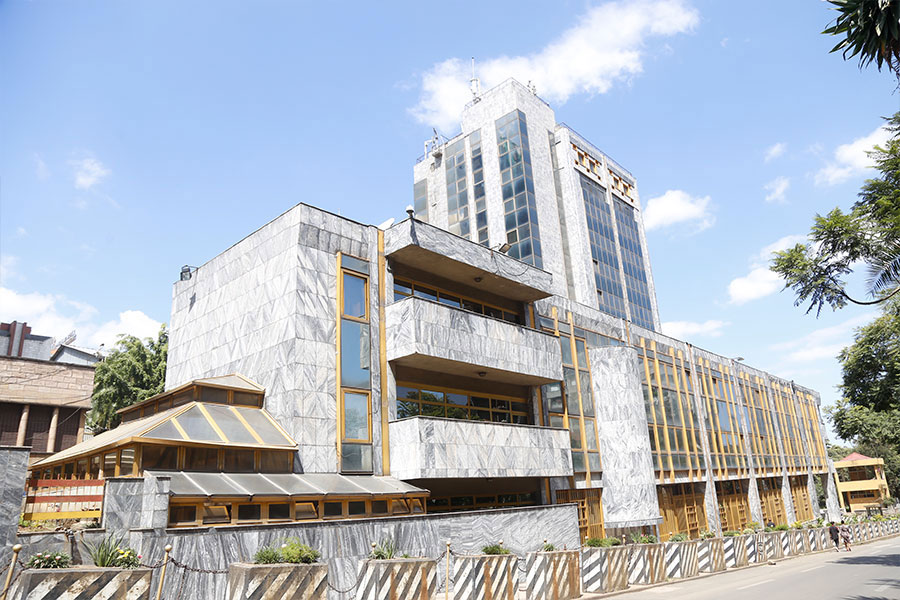
Sep 10 , 2022
Given the rich world’s longstanding failure to finance climate mitigation and adaptation in the Global South, it is understandable that some developing countries would prioritize their own immediate growth over “saving the planet.” In fact, there is no longer any tradeoff between economic growth and decarbonisation, writes Alessio Terzi, economist at the European Commission.
In the run-up to the United Nations Climate Change Conference (COP27) in Sharm El-Sheikh, this year’s energy crisis has intensified the debate over what policies developing countries should be putting first. Some argue that poor countries should focus on development rather than decarbonisation; others advocate “green development,” which would involve leapfrogging fossil fuels altogether.
Meanwhile, rich countries, multilateral institutions, and major lenders like China are all phasing out development financing for fossil-fuel projects even as they reopen their own coal-fired power plants.
What are developing countries supposed to think?
To capitalise on high oil and gas prices, some are auctioning off their peatlands and rainforests for drilling and mining. Not mincing words, the Democratic Republic of the Congo’s lead climate representative recently pointed out that his country’s priority is to achieve stronger growth, “not to save the planet.”
This way of framing the matter is understandable, given the rich world’s longstanding failure to meet its promises and help finance climate mitigation and adaptation in the Global South. But the supposed tradeoff between economic development and green policies is unconvincing – or at least suffers from a high degree of short-termism.
Study after study has shown that the catastrophic effects of unfettered climate change will be felt first and most acutely in poorer countries. (In fact, at the time of this writing, one-third of Pakistan is underwater.) That means there is no viable future scenario in which the Global South will use fossil fuels to escape destitution and invest in decarbonisation only later. Following the same path that rich countries took will lead to climate havoc. Like everyone else, poor countries need to contribute as much as possible to the global decarbonization effort not to “save the planet” (which will be fine without us) but to save themselves from even more severe droughts, floods, famines, and instability.
Moreover, the idea that highly polluting economic growth should be prioritised over green investments rests on the premise that there will be a market for highly polluting goods in the future. But looking beyond the short term, it is already clear that a combination of changing consumer preferences, carbon border taxes, sustainability provisions in trade treaties, and various regulatory requirements and labelling standards in rich countries will render pollution-intensive options a bad investment.
In this likely future, developing countries could end up locked into products and technologies that the rest of the world regards as antiquated or inferior – be it internal combustion engine components, “fast fashion” garments, unrecyclable plastics, or fossil fuels.
It is worth remembering that every single development “miracle” since the 1950s – be it postwar Japan, the Asian Tigers, Indonesia, or China – was sustained by a rapid expansion of exports that were destined for rich, industrialised, high-consuming countries. No such opportunity will exist for countries reliant on highly polluting products. Among the sectors that are instead widely expected to experience exponential growth in the years ahead are electric vehicles (EVs), batteries, and green hydrogen.
Some remain unconvinced, based on the observation that the only rapid economic growth in human history was powered by fossil fuels. But this is a bit like concluding at the beginning of the twentieth century that “it is not probable that man will ever be able to get along without the horse,” and choosing to specialise in horse-carriage technology. What worked in the past will not necessarily work in the future.
Finally, the tradeoff narrative assumes that highly polluting options are cheaper, whereas green technologies are a luxury that only affluent countries can afford. Yet even if this is true at the moment, the gap is rapidly shrinking; the green option will soon be cheaper, too.
This is already true of solar and wind energy in many parts of the world, and EVs, meat alternatives, and other products are sure to follow the same path. Owing to large public and private investments – such as those in the European Green Deal or the US Inflation Reduction Act – green technologies’ descent down the cost curve will accelerate, abating the costs of the energy transition worldwide and making fossil-fueled development relatively more expensive.
Some countries in the Global South are already putting these principles into practice. Ethiopia, for example, aims to reach middle-income status by building a green economy, with investments in afforestation, renewables, and improved transportation systems. And Kenya likewise has become a low-carbon trailblaser.
As Ricardo Hausmann of Harvard University observes, “green development” is no longer an oxymoron. On the contrary, it is the only realistic option. To achieve sustained growth, each country must determine how it can best contribute to the global green supply chain, based on its comparative advantages. These may lie in extracting the raw materials needed for the green transition, producing and exporting renewable electricity and hydrogen, or manufacturing advanced green products at home.
Either way, growth in the coming decades will be green. Countries that do not get on board now risk being left behind.
PUBLISHED ON
Sep 10,2022 [ VOL
23 , NO
1167]

In-Picture | Oct 12,2024

Advertorials | May 30,2025

Commentaries | Jan 03,2021

Radar | Jun 14,2020

Radar | Apr 30,2024

Fortune News | Mar 02,2024

Viewpoints | Mar 09,2024

News Analysis | Jan 15,2022

Radar | Sep 19,2020

Commentaries | Nov 26,2022

My Opinion | 131656 Views | Aug 14,2021

My Opinion | 128020 Views | Aug 21,2021

My Opinion | 125983 Views | Sep 10,2021

My Opinion | 123607 Views | Aug 07,2021

Dec 22 , 2024 . By TIZITA SHEWAFERAW
Charged with transforming colossal state-owned enterprises into modern and competitiv...

Aug 18 , 2024 . By AKSAH ITALO
Although predictable Yonas Zerihun's job in the ride-hailing service is not immune to...

Jul 28 , 2024 . By TIZITA SHEWAFERAW
Unhabitual, perhaps too many, Samuel Gebreyohannes, 38, used to occasionally enjoy a couple of beers at breakfast. However, he recently swit...

Jul 13 , 2024 . By AKSAH ITALO
Investors who rely on tractors, trucks, and field vehicles for commuting, transporting commodities, and f...

Jun 28 , 2025
Meseret Damtie, the assertive auditor general, has never been shy about naming names...

Jun 21 , 2025
A well-worn adage says, “Budget is not destiny, but it is direction.” Examining t...

Jun 14 , 2025
Yet again, the Horn of Africa is bracing for trouble. A region already frayed by wars...

Jun 7 , 2025
Few promises shine brighter in Addis Abeba than the pledge of a roof for every family...

Jun 29 , 2025
Addis Abeba's first rains have coincided with a sweeping rise in private school tuition, prompting the city's education...

Jun 29 , 2025 . By BEZAWIT HULUAGER
Central Bank Governor Mamo Mihretu claimed a bold reconfiguration of monetary policy...

Jun 29 , 2025 . By BEZAWIT HULUAGER
The federal government is betting on a sweeping overhaul of the driver licensing regi...

Jun 29 , 2025 . By NAHOM AYELE
Gadaa Bank has listed 1.2 million shares on the Ethiopian Securities Exchange (ESX),...